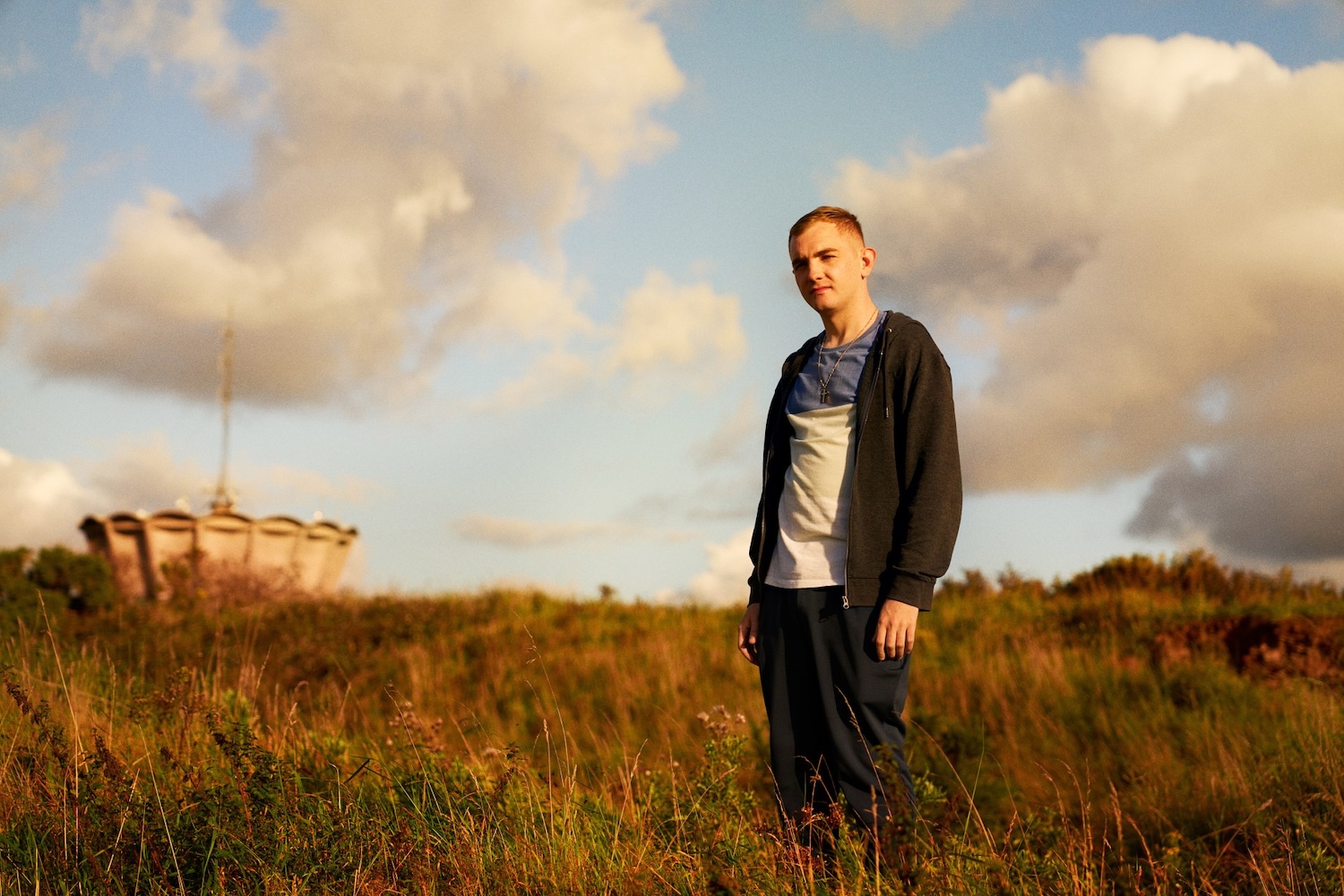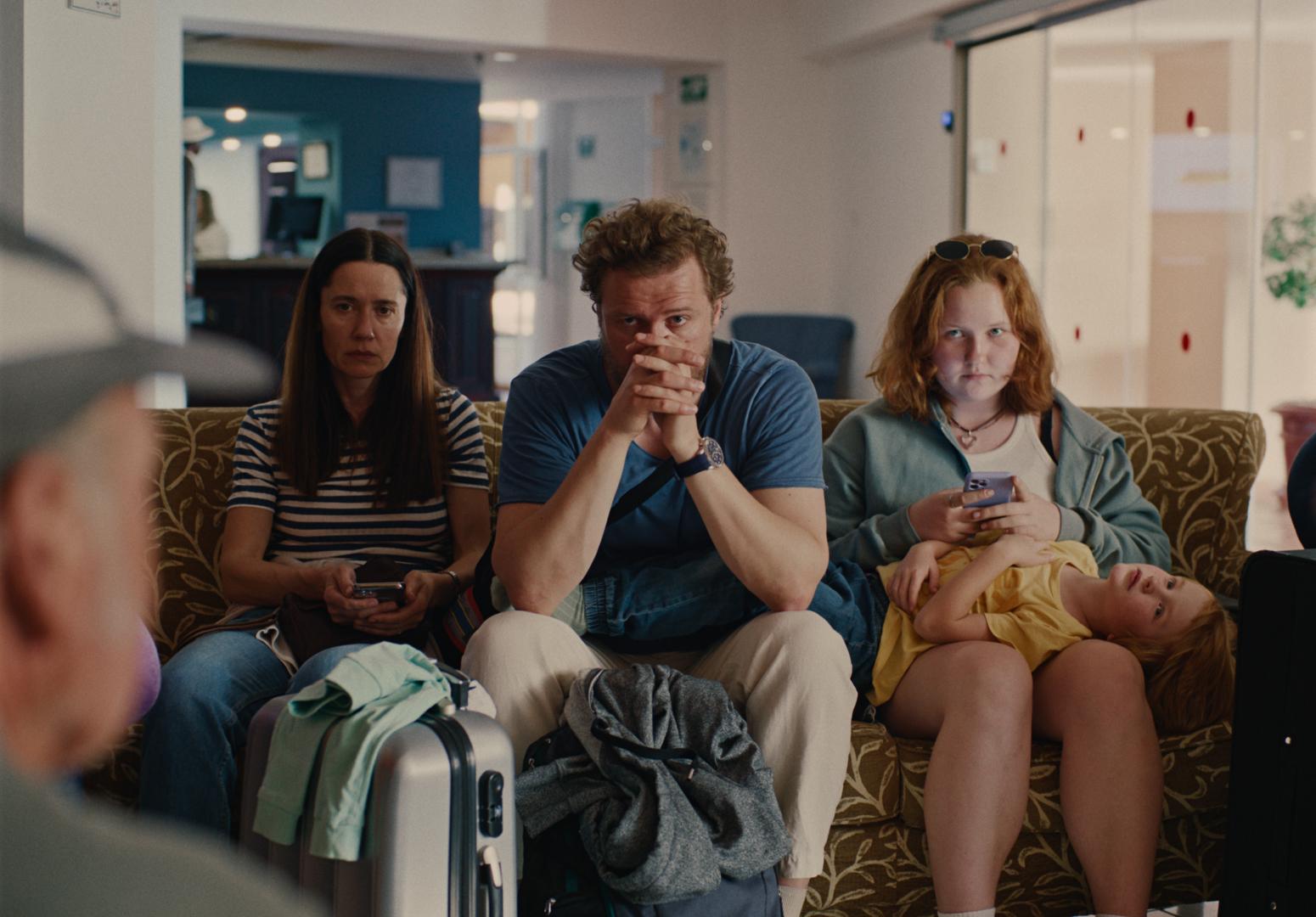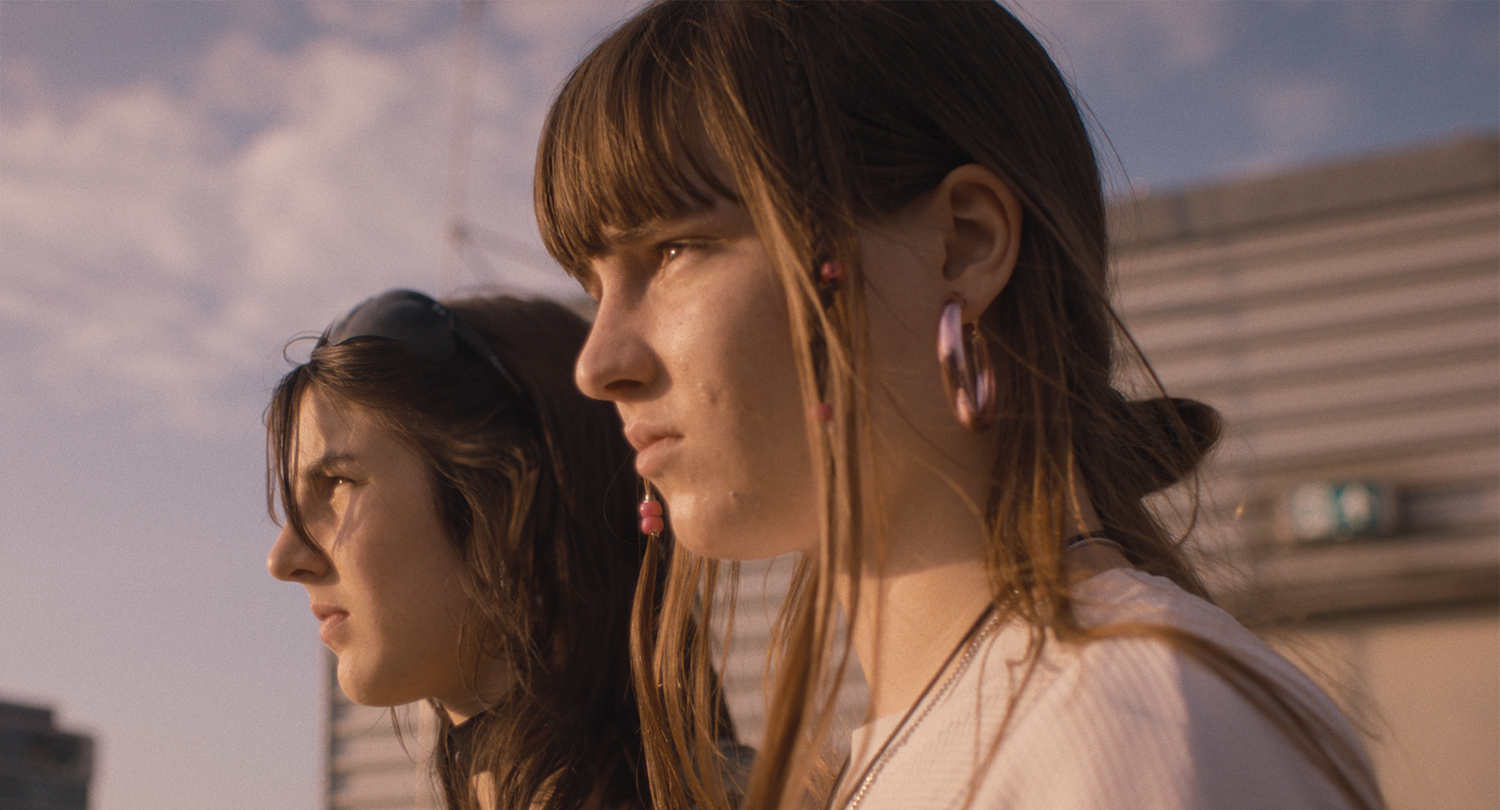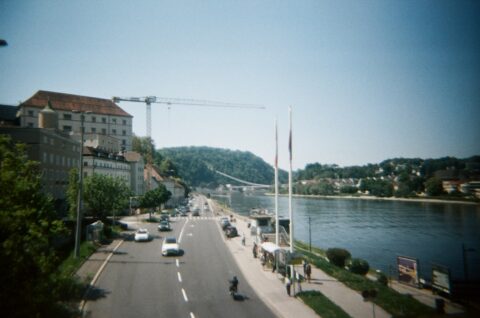Thursday night was the “Secret Office Party” at the Karmelitan-Krpyta. Originally built in 1726 to bury donors to the local church, the crypt has been used as an event space since the 1980s. It was the perfect place to eat various Knödel and taste schnapps brought to the event from across the continent. There I had the pleasure of meeting Brendan Canty, director of Christy (2025), and decided that the next morning, I would get up bright and early to catch the morning screening.
It screened as part of the YAAAS! Programme, six films selected by youth programmers from twelve entries, representing a kind of slimmed-down Generation programme. As a result, the screening appeared to be almost exclusively populated by teenagers in what seemed to be on some kind of extracurricular school activity. Considering the high amount of swearing, smoking and even drug taking in Christy (2025), it reflects a rather laid-back yet mature view of teenage life from the local education authority. Kids are going to be kids, no matter how much you suppress the ugly reality of life. May as well actually let them see what growing up across Europe is really like.

The Wit of the Irish
Canty’s film is shot in Academy Ratio, using the claustrophobic frame to capture the lack of opportunities the eponymous Christy (Danny Power in a brilliant debut role) faces. Having been kicked out of his foster home just a few weeks out from his 18th birthday, he is forced back to the working-class hometown of Knocknaheeny in Cork to live with his brother Shane (Diarmuid Noyes).
With a fantastic ear for local detail and with a wide variety of brilliant young and old actors in the supporting roles, this Berlinale Generation winner is another example of why the world needs more Irish stories, as the wit on display, as well as funny characters like Robot (in a wheelchair) and Fingers (not what you think!), imbues a well-worn kitchen sink theme with a much-needed levity, like a gorgeous streak of sunshine after a long rainy day.
The authentic dialogue shows off the rich creativity of Cork slang, like calling bonfire night a “bonna” or a haircut a “bazzer.” Understandably, even though the film is exclusively in Hiberno-English, it was screened with English subtitles. I know that many kids on the continent of Europe are scarily good at English, but I wonder if they understood that “giving someone the ride” in Ireland does not mean picking them up in your car.

War From Afar
While the use of Academy Ratio in Christy — handheld, intimate — betrays the influence of the British kitchen sink drama tradition, the use of the same frame in Damien Kocur’s Under the Volcano (2024) — mostly static, impersonal, precise — indicates a more continental aesthetic; think Ruben Östlund or Ulrich Seidl. Telling the story of a Ukrainian family vacationing in Tenerife as Russia invades their country, Kocur’s sophomore effort is the very definition of a step up from his excellent debut Bread and Salt (2022). Another Polish Film Institute win.
“No worries, it’s summertime,” says Roman (Roman Lutskyi), head of the Kovelenko family, as he looks for parking in the Canaries at the height of Carnival season. He’s there with his second wife (last one died), Nastya (Anastasiia Karpenko) and his two children, Fedir (Fedir Pugachov) and Sofiia (another brilliant newcomer, Sofia Berezowska). Little do they know that the full-scale invasion of Ukraine is actually going to happen, leaving them stranded on the island for an indefinite period of time. Yet, this won’t stop others from partying and vacationing, Kocur exploiting that cognitive dissonance to truly excellent effect.
Even before the main premise kicks into gear, Kocur shows off his ability to create arresting compositions, portraying the liminal space of the resort hotel as a kind of waiting room, the stasis of the characters reflected in the slow pace and careful mise en scène. Although keenly attuned to the suffering of his characters, his style pushes the topic towards a more existential and mannered exploration of what it means to be at war, yet thousands of miles away from the frontline.
Particularly clever is the way that the situation is portrayed mostly through Sofiia’s perspective. Meaning is found in the silences of her gaze, staring into an abyss, currently without end.

Das Licht 2
The third-coming-of-age story of the day, Slackers (Sorina Gajewski, 2025), is certainly the lightest. French New Wave for the Gen Z generation, it tells the loosely-plotted story of two teenage girls as they traipse around Berlin on a particularly hot summer’s day. But the intense heat and the protests that befall the city during Fridays for Future provide the film with a sense of urgency, asking if there is going to be a true future for these girls as the planet keeps on heating up.
Maybe I should only review what’s in front of me. But after watching Christy’s difficult, yet well-deserved maturity and Sofiia facing life under invasion from afar, Gajewski’s film, focussing on pretty-much well-to-do German girls who are worried about climate change and like getting up to silly pranks, felt rather inconsequential in comparison. There is probably a great movie to be made about disaffected youth in the West, but the shaggy doc antics and cringeworthy speeches that populate Slackers are more of an annoying Das Lichtesque (Tom Tykwer, 2025) turn-off than a truly inspirational plea for change.
I tried to amuse myself by figuring out where in Berlin it was shot, but the constant use of shallow focus rendered my side quest inert. Perhaps young girls of that age will find more to love here.
Redmond is the editor-in-chief of Journey Into Cinema.
